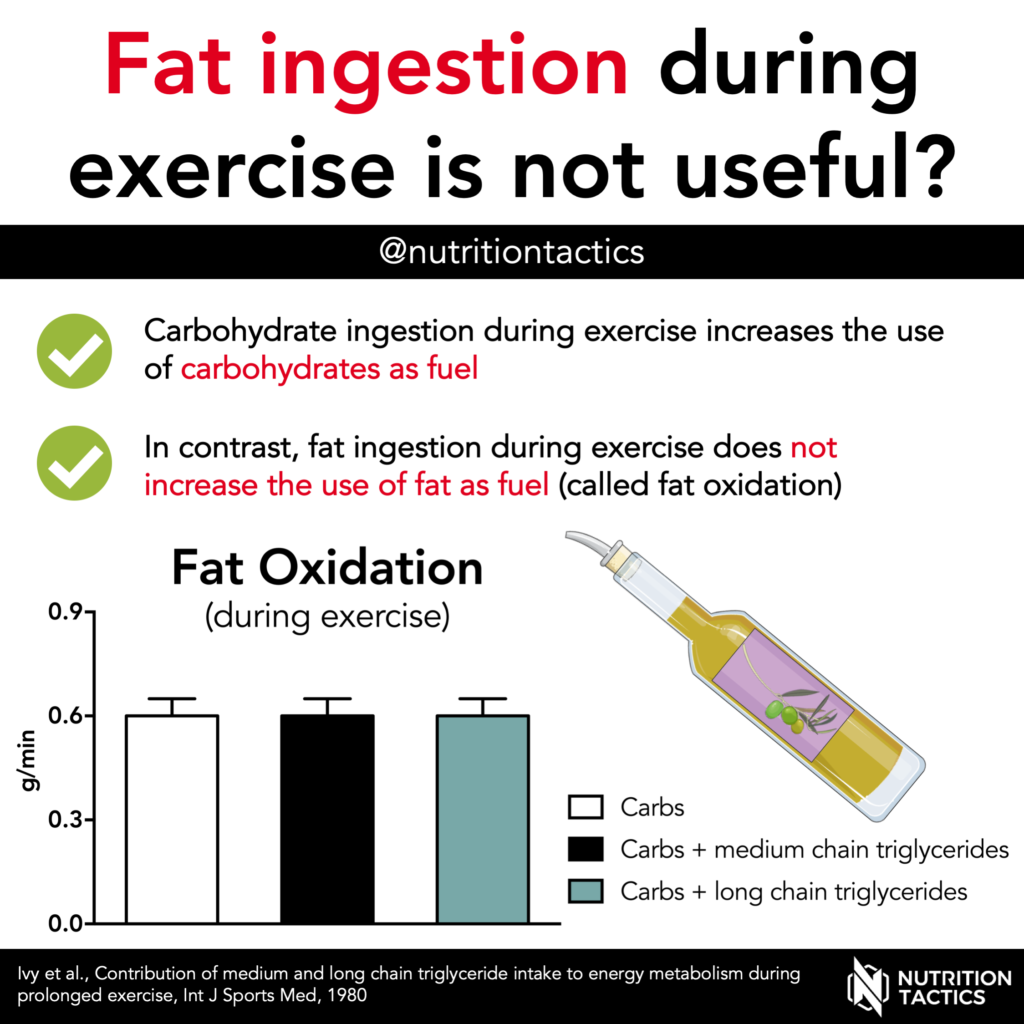Is it helpful to ingest fats during exercise?
Fat and carbohydrate are the main fuel sources during prolonged endurance exercise. Fat is the main fuel source during low-intensity exercise, while carbohydrate is the main fuel source during higher intensity exercise (infographic, Van Loon, 2001).
The depletion of carbohydrate stores in the muscle and liver is a main factor causing fatigue during prolonged exercise. However, these carbohydrate stores can be supported by the ingestion of carbohydrate before or during exercise. Such ingested carbohydrates can be immediately utilized as fuel (carbohydrate oxidation) (infographic, Trommelen, 2017) .
Likewise, it could be speculated that the ingestion of fat can increase fat oxidation (burning fat as fuel) during exercise. Medium-chain triglycerides (MCT) may be a good source of fat for this, as they are more easily oxidized compared to long-chain triglycerides (LCT).
This study investigated the impact of fat ingestion on fat oxidation during 60 minutes of cycling exercise.
The cyclists ingested:
- MCT + carbohydrates
- LCT + carbohydrates
- Carbohydrates
Meals were consumed 1 h before exercise. Carbohydrates were given in all meals, because MCT taken by itself cause stomach cramping and diarrhea. MCT and LCT were given at a dose of 30 g, which was the highest dose of MCT that did not cause severe gastrointestinal issues.
Neither the MCT nor the LCT treatment increased fat oxidation rates compared to the carbohydrate treatment.
Therefore, fat ingestion during exercise does not seem useful. Nutritional recommendations during exercise for endurance athletes are entirely focused on carbohydrate ingestion.
Go to the next infographic in the fat series:
Ketogenic diet impairs exercise performance?


Leave a Reply